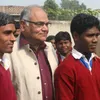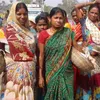Meet the woman who has been working to uplift women and girls of Bihar’s Musahar community
Sudha Varghese’s story is one of love, courage, and compassion. She has opened the door to acceptance for thousands of people who have long lived on the fringes of society.
Sitting in the corridor of the school she started in Bihar, Sudha Varghese smiles. “Even in the face of a threat, I don’t show my fear. This tactic has worked well for me through the years,” she says softly.
Prerna, the school she is sitting in and founded in 2005, is no ordinary institute. The Padma Shri awardee started it for girls from the most socially deprived groups of Bihar, to help “give their stories a new beginning”.
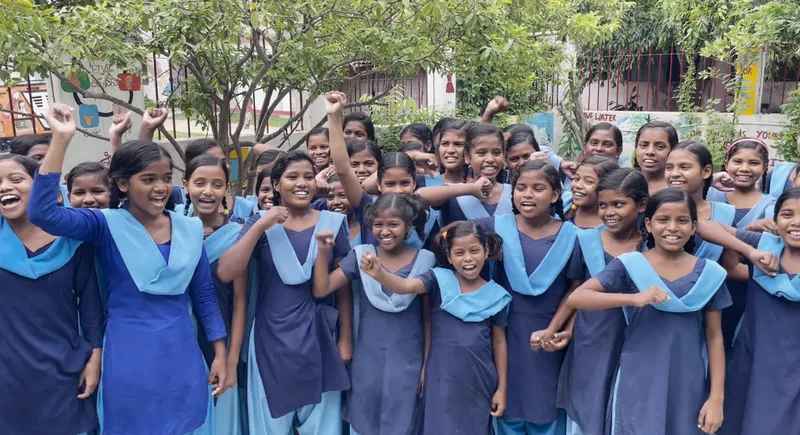
Sudha has devoted more than 30 years of her life working for the empowerment of the Musahar community of Bihar.
It started in the early 1960s when she was still in her early teens. A magazine in her school library caught her attention. It had pictures of a land far away, pictures that were horrifying and showed the appalling living conditions of the Musahars, a community in Bihar. The word “musahar” literally translates to “rat eaters”.
Sudha was shocked by the community's extreme socio-backwardness as she had never seen anything like it in Kerala where she was born and raised. She decided to do her bit to improve the lot of the Musahars.
In 1965, she moved to Bihar to work for the poor and deprived. She started working in Patna’s Notre Dame Academy. During her training there, she learned English and Hindi.
In 1986, she decided to leave behind her comfortable life, live with the Musahars, educate them, and devote all her time and resources to improving their lives. She shifted to a village and started living in an old hut.
“It was very challenging at first. The first night, it rained heavily, and I had to continuously collect water in dishes and throw it away so that the hut was not flooded. However, I was prepared. This is what I had come for,” she recalls.
Living with the Musahars opened a new window for Sudha. It made her realise that she was not only fighting poverty but centuries-old practices of casteism too.
Musahars have been facing discrimination in every phase and area of their lives. They had no access to education, were landless, and primarily worked on farms for paltry earnings. Girls and women of the community were frequently subjected to crimes such as rape and sexual harassment.
Fighting crime against women
In 1987, Sudha Varghese founded the organisation Nari Gunjan (women’s voice) to support thousands of women from socially outcast communities in their fight against long-standing injustices.
Initially, the women had no idea about their legal rights. They were unaware that rape and sexual abuse were crimes that needed to be reported. The reasons were many.
The first was lack of knowledge as they were never taught or told that they had the right to speak up. The second was a social structure in which they were placed at the bottom. “If you were sitting on a chair and there was an empty one beside you, they wouldn’t sit on it. They would rather sit on the ground,” says Sudha, adding that they had been conditioned to believe that their place in society was at the bottom and would remain so. The third reason was their dependence on the “dominant class”, as the community worked on their farms and were afraid of saying anything against them.
Sudha speaks of an incident of rape in the village when she went to the police station to file a report. The response from the police officer was: “Who would rape a girl wearing such filthy clothes?”
“Everyone feared going to the police station. They said the cops would severely beat them," she says.
Sudha’s background as a lawyer helped in situations like these. In less than two years, she reported nine rape cases, all of which took place in the same area. She says the Musahars were experiencing the same thing in every other village.
She says she didn’t have it easy—there were “plots to drive me out of the village, to incite people against me”…and there were threats to her life. She chose not to give up, no matter what.
“I observed a significant change in women’s attitude in a short time. They became more aware of their legal rights. They now go to the police station alone to report such incidents, and they call me if the police do not listen…and we assist them,” she says.
Education for girls
Sudha felt that to bring a major change, girls from these communities needed to be educated. There was a need for a school where they could see themselves in a different way, where they learnt that they were deserving, and figured out how to make a place for themselves in society.
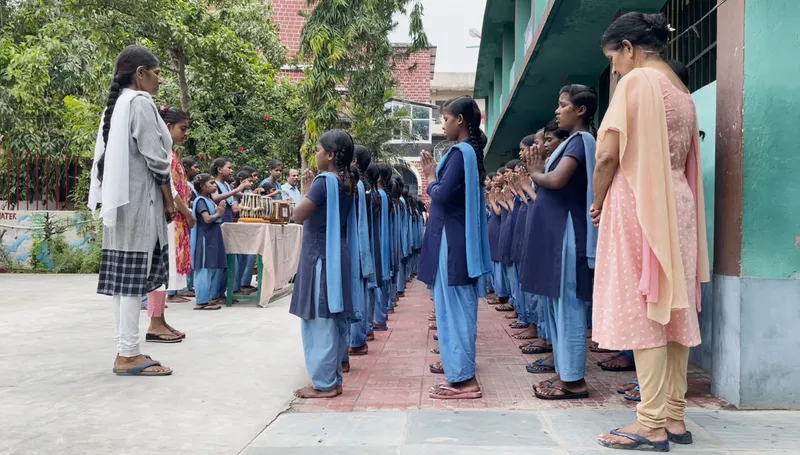
This is why she decided to open Prerna, a residential school in Danapur, Bihar.
The building’s foundation stone was laid in 1988 for a hostel for Dalit boys. However, until 2005, when Sudha discovered the site, the building was “half a public toilet and half a buffalo shed”. She got it up and running in 2006, with the support of the state government and public donations. It was designed to house 50 boys, but now schools 150 girls.
The girls here are mostly first-generation learners. They aspire to be doctors, engineers, and teachers. In addition to academics, they are taught karate, painting, and arts and crafts. At a karate competition held in Gujarat, they won five gold, five silver, and 14 bronze medals. They also competed in the International Martial Arts Championship in Japan.
Livelihood programmes for women
Nari Gunjan works in different districts of Bihar and offers multiple livelihood projects for women. The Nari Gunjan Sargam Mahila Band, an all-woman band, is the most distinctive one and has received widespread appreciation.
“I had seen women perform in Andhra Pradesh and Tamil Nadu. If they can do it, why can't my women? They were sceptical at first, but it turned out to be a big success. They now earn up to Rs 2,000 per performance, which is far more than they would on the fields,” Sudha says.
After the liquor ban in Bihar, the organisation advised women to start kitchen/home gardens and sell excess produce. It was a success. The major turning point was when Musahar women started farming for themselves rather than on other people's farms. The produce—mainly onion—brought in up to Rs 5 lakh profit for some of them. In the next few years, they bought land in their own names.
“My women are rewriting history. They are now a landed community. This is just a beginning,” Suhda says, her face alive with hope.
Seeking true equality
“Sirf hungama khada karna mera maqsad nahi, meri koshish hai ki ye surat badalni chahiye (It is not my intention to merely create a ruckus, my purpose is to bring about a change and the situation must change).” The sound of girls singing Dushyant Kumar's famous poem reverberates off the school's walls. It acts as a reminder to both the government and society that much more needs to be done.
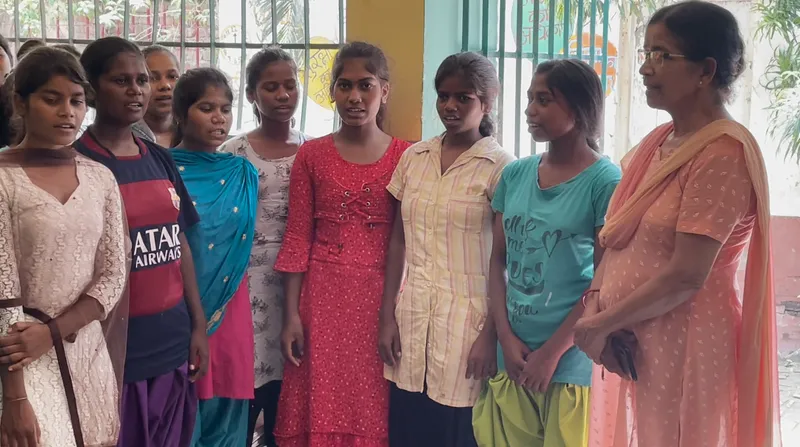
“It is important that when we look at other humans, we only look for humans. That is where equality would begin,” says Sudha, adding that she hopes that the future of these communities heals the tragedies of the past.
Edited by Teja Lele



